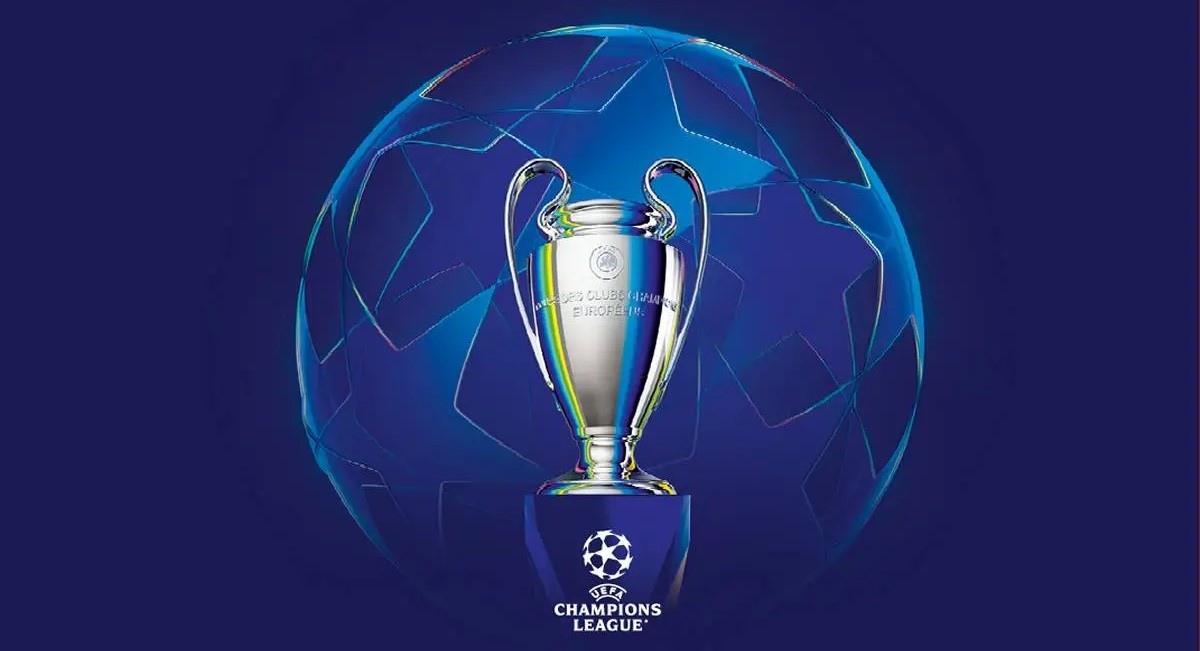
The UEFA Champions League (UCL) stands as the pinnacle of European club football, capturing the imagination of fans across the globe every season. Established in 1955 as the European Champion Clubs’ Cup and rebranded in 1992 as the Champions League, this competition pits the continent’s elite teams against one another in a quest for continental supremacy. Unlike domestic leagues, the UCL offers a unique blend of high-stakes knockout drama and group-stage intrigue, showcasing diverse playing styles, tactical innovations, and some of football’s greatest talents. In this comprehensive article, we will delve into the history, format, iconic moments, cultural impact, and future prospects of UCL soccer, providing a thorough exploration.
Origins and Early History
The Birth of a Continental Tournament
- 1955 Inauguration
Conceived by Gabriel Hanot of L’Équipe, the European Cup began with 16 teams in a straight knockout format. Real Madrid dominated the early years, winning the first five editions from 1956 to 1960, a feat that established the competition’s prestige. - Format and Reception
The knockout-only structure was simple: home-and-away ties decided advancement. The final was a single match at a neutral venue, creating a centralized spectacle—a concept novel for its time.
Evolution Through the 1960s and 1970s
- Diversity of Champions
The 1960s saw clubs like Benfica, Inter Milan, and Celtic lift the trophy, reflecting the tournament’s growing competitiveness. In the 1970s, Ajax’s “Total Football” ethos, led by Johan Cruyff, revolutionized tactics and enthralled spectators. - Televised Soccer and Growing Popularity
As television rights deals expanded, the European Cup reached wider audiences. Iconic moments—such as Panathinaikos’s run to the 1971 final—cemented the competition’s place in soccer culture.
The 1992 Rebranding: Champions League Era
From European Cup to Champions League
- Commercialization and Group Stage Introduction
In 1992, UEFA introduced a group stage and allowed multiple entrants from top leagues, transforming the tournament from a knockout cup into a mini-league system. This change boosted revenues, television audiences, and sponsorships. - Mega-Clubs Rise
Powerhouses like AC Milan, Barcelona, and Manchester United capitalized on the new format. The 1999 final, where United recovered from two goals down to win with two stoppage-time goals against Bayern Munich, remains one of football’s most dramatic finales.
Expansion and Further Changes
- Increase in Participants
By the early 2000s, four teams from the highest-ranked domestic leagues could enter directly into the group stage. A preliminary “play-off” round and a secondary competition—the UEFA Europa League—were also introduced. - Economic Disparity Concerns
The influx of broadcasting revenue and sponsorship deals widened the gap between elite clubs and smaller contenders, fueling debates about competitive balance.
Tournament Format Explained
Qualification Pathways
- Automatic Qualifiers
The champions and high-placing teams from UEFA’s top domestic leagues (England, Spain, Germany, Italy, France, etc.) enter directly into the group stage. Lower-ranked national associations compete through qualifying and play-off rounds. - Champions Path vs. League Path
Introduced in 2018–19, this bifurcated route ensures that domestic league champions from lower-ranked nations can still reach the group stage, preserving continental diversity.
Group Stage Dynamics
- Structure
Thirty-two teams are split into eight groups of four. Each team plays home and away against group opponents, and the top two in each group advance to the knockout phase. Third-placed finishers drop into the Europa League knockout round play-offs. - Strategic Considerations
The group stage demands squad depth and rotation—managers juggle domestic and continental commitments, often leading to tactical conservatism in away fixtures and open play at home.
Knockout Phase Mechanics
- Round of 16 to Semi-Finals
Two-legged ties, home and away, determine which team progresses. Away goals rule was abolished in 2021–22, replaced by extra time and penalties if aggregate scores are level. - The Final
A single match at a predetermined neutral venue. The final has been hosted at iconic stadiums such as Wembley (London), San Siro (Milan), and the Santiago Bernabéu (Madrid).
Iconic Clubs and Dynasties
Real Madrid: The Record Holders
- 14 Titles (1956–2022)
Real Madrid’s unparalleled success includes the original five consecutive victories and La Décima (10th title in 2014). Their blend of Galácticos—legends like Alfredo Di Stéfano, Zinedine Zidane, and Cristiano Ronaldo—embodies UCL excellence. - Cultural Impact
Real Madrid’s dominance has expanded their brand globally, making the UCL final an annual showcase of their star-studded squad.
AC Milan and Bayern Munich
- AC Milan
With seven titles, Milan’s golden eras in the late 1980s (Arrigo Sacchi’s side) and early 2000s (Carlo Ancelotti’s “Invincibles”) left an indelible tactical mark. - Bayern Munich
Also seven-time winners, Bayern’s all-German 2019–20 treble-winning side under Hansi Flick showcased a high-pressing, possession-based style.
Early Underdogs and Surprise Winners
- Nottingham Forest (1979, 1980)
Brian Clough’s side won back-to-back titles despite modest domestic success, epitomizing the competition’s romanticism. - Porto (2004)
José Mourinho’s Porto shocked Europe, defeating Monaco in the final and launching Mourinho’s managerial career.
Legendary Players and Managers
Players Who Defined the UCL
- Cristiano Ronaldo
All-time leading scorer (140+ goals) across nine consecutive UCL seasons with Manchester United and Real Madrid. His clutch performances in finals solidified his legacy. - Lionel Messi
While his UCL trophy count (four) trails Ronaldo’s, Messi’s dribbles, vision, and goal involvements (goal or assist every ~80 minutes) highlight his impact. - Raúl González and Karim Benzema
Spanish striker Raúl held the all-time scoring record before Ronaldo, while Benzema’s pivotal 2021–22 campaign earned him the Ballon d’Or.
Managers with UCL Pedigree
- Sir Alex Ferguson (Manchester United)
Led United to 1999 and 2008 titles, balancing domestic dominance with continental success. - Carlo Ancelotti
The only manager to win four UCL trophies (two with Milan, two with Real Madrid), known for adaptable tactics and man-management. - Pep Guardiola
Although still searching for his first UCL title with Manchester City, Guardiola’s Barcelona revolution (2009, 2011) forever changed modern soccer.
Memorable Finals and Moments
Classics of the Modern Era
- 1999 Manchester United vs. Bayern Munich
Two late goals from Teddy Sheringham and Ole Gunnar Solskjær overturned a 1–0 deficit, epitomizing “never say die” spirit. - 2005 Istanbul: Liverpool vs. AC Milan
Down 3–0 at halftime, Liverpool rallied to draw 3–3 and won on penalties, part of the club’s “Miracle of Istanbul” lore. - 2014 Real Madrid vs. Atlético Madrid
Cristiano Ronaldo’s extra-time header secured La Décima, ending a 12-year UCL drought.
Modern Showpieces
- 2019 Tottenham vs. Liverpool
First final without Real Madrid, Barcelona, or Bayern since 2005. Divock Origi’s late goal clinched Liverpool’s sixth title. - 2021 Chelsea vs. Manchester City
Thomas Tuchel’s tactical masterclass saw Chelsea neutralize City’s possession, winning 1–0.
Tactical Evolution in the Champions League
From “Catenaccio” to “Tiki-Taka”
- Defensive Solidity
The Italian “catenaccio” of the 1960s and 1970s prioritized tight marking and counter-attacks, exemplified by Inter Milan under Helenio Herrera. - Possession Football
Barcelona’s “tiki-taka” under Guardiola (2009–11) emphasized short passing, spatial awareness, and pressing—templates adopted widely thereafter.
High Press and Gegenpressing
- Jürgen Klopp’s Influence
Liverpool’s gegenpressing (2018–19) showcased relentless counter-press after losing possession, leading to quick transitions and pressing triggers. - Variations Across Clubs
Bayern’s high line and pressing under Flick, Real Madrid’s blend of directness and quick transitions, and City’s positional play under Guardiola illustrate tactical diversity.
Commercial Growth and Media Rights
Revenues and Distribution
- Broadcasting Deals
The Champions League generates over €3 billion annually from TV rights, with revenue distribution based on performance, market value, and historical coefficients. - Sponsorship and Branding
Global brands (Heineken, Mastercard, Nissan, etc.) leverage the UCL’s platform, contributing to its financial ecosystem.
Matchday and Fan Engagement
- Global Audience
The UCL final routinely attracts 380+ million viewers worldwide, making it one of the most-watched annual sporting events. - Digital Platforms
UEFA’s digital streaming, social media content, and interactive apps have expanded fan engagement, especially among younger demographics.
Cultural Impact and Grassroots Development
Inspiration for Clubs and Players
- Youth Academies
Success in the UCL often drives clubs to invest in youth development—La Masia (Barcelona), Ajax Academy, and Sporting CP’s academy (which produced Cristiano Ronaldo) are prime examples. - Soccer Identity
Clubs build identities around UCL performance, influencing recruitment, playing style, and global partnerships.
Globalization of European Football
- International Fanbases
Clubs tour Asia, North America, and Africa on pre-season friendlies, capitalizing on UCL fame to cultivate new markets. - Broadcast in Emerging Markets
Sub-Saharan Africa, Southeast Asia, and Latin America collectively account for a significant share of the UCL’s international viewership.
Criticisms and Controversies
Competitive Imbalance
- Financial Disparities
Top clubs receive a disproportionate share of UCL revenues, reinforcing the “big six” in England and similar elite groups elsewhere. - Breakaway Talk
Proposals for a European Super League in 2021 revealed frustrations with the status quo, though widespread fan backlash halted the project.
Scheduling and Player Welfare
- Fixture Congestion
Domestic leagues, cups, and continental commitments create packed calendars, raising concerns over player fatigue and injuries. - Rotations vs. Integrity
Managers often rotate squads in group stages; critics argue this dilutes match quality and undermines the competition’s prestige.
The Future of the UEFA Champions League
Proposed Format Changes
- “Swiss Model”
From 2024–25, a single league phase with 36 teams playing eight opponents each (four home, four away), with top eight advancing directly and next 16 in play-offs. This aims to guarantee more high-profile matches. - Financial Fair Play Reforms
UEFA is revising FFP rules to promote sustainability and curb excessive spending, potentially leveling the playing field.
Technological Innovations
- VAR and Semi-Automated Offside
Video Assistant Referee technology and semi-automated offside detection will refine officiating accuracy, though debates about game flow persist. - Fan Experience Enhancements
Augmented reality apps, in-stadium lighting displays, and personalized live stats are expected to deepen fan immersion.
The UEFA Champions League remains the quintessential showcase of club football excellence. From its humble knockout beginnings to today’s multi-billion-euro spectacle, the UCL has shaped soccer tactics, boosted club finances, and galvanized fans worldwide. As the competition evolves with format tweaks, technological aids, and financial reforms, its core essence—pitting Europe’s best teams in high-stakes drama—will endure. Whether you’re drawn to the tactical chess match of the knockout rounds, the group-stage intrigue, or the final’s pageantry, the Champions League continues to captivate, inspire, and elevate the beautiful game.

